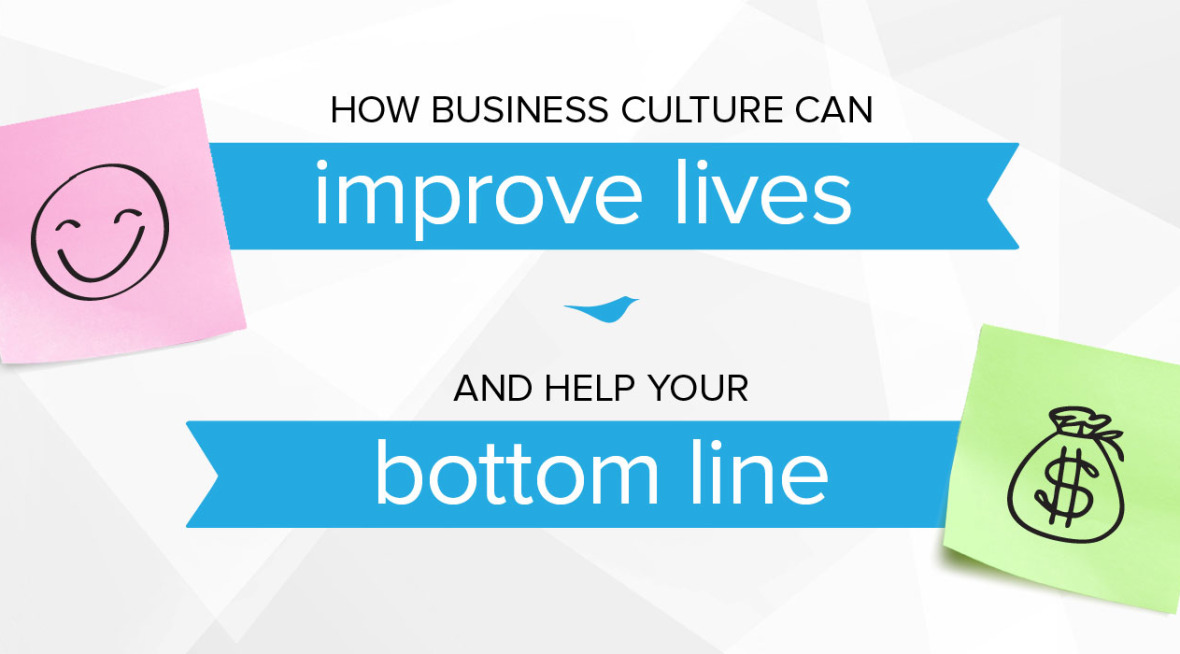
Culture has the ability to transform not just businesses but the people who work in the businesses, even in the most unlikely situations. “The impact of behavioral standards plays a huge role in how an organization functions,” writes Josh Linkner in The Road to Reinvention: How to Drive Disruption and Accelerate Transformation.
Father Greg Boyle, executive director of Homeboy Industries, illustrates how cultural change can change lives and build businesses. Father Boyle started Homeboy Industries as a job-training program when he was the pastor of Dolores Mission Parish in Boyle Heights (it’s a coincidence that the Father and the neighborhood share the same name).
More than 65% of the ex-convicts in California are back in jail within three years, which is very costly to taxpayers. One of the reasons this cycle is difficult to break is that once you have a felony conviction, it is extremely difficult to find employment. Father Boyle set out to change that with Homeboy Industries. And he did. The program has launched several businesses that created employment opportunities for the people Homeboy Industries trained.
Boyle believes that people deserve a second chance and that, in the right environment, even people with a tough past can thrive. “Rather than checking workers pockets, he extends trust,” writes Linkner. “He treats the team with dignity, compassion, and respect, which they give right back to Boyle and the organization as a whole.”
The culture of trust that he creates lays the foundation for a variety of businesses that generate $10 million in sales of apparel, salsa, and cafe receipts. Homeboy Industries employees 400 ex-cons in a Boyle Heights in East LA, a neighborhood that in the ‘80s had more gang members per capita than any other place in the country.
The result: The organization has helped 120,000 gang members envision an exit ramp off the "freeway" of violence, addiction, and incarceration. It has worked with 40 other organizations to replicate elements of it business model.
Your challenges may not be reducing recidivism rates in a tough neighborhood. More likely it’s tackling brutal competition, fickle consumer trends or the entry of game-changing technology, but these challenges also daunting. Reinventing your culture can ensure that you don’t go the way of Blockbuster, Circuit City, and Kmart. Linkner suggests some do’s and don’ts when transforming your culture.
Do:
- Clearly articulate and reinforce the need for change
- Name the initiative
- Get people involved
- Develop key principles
- Be specific
- Align incentives
- Train and reinforce
Don’t:
- Flip flop
- Create competing principles
- Say one thing and do another
- Neglect follow through
Reinvention can be a seismic upheaval or tiny tweaks. Either way, if you want your business to be sustainable in the long run, you need to create a culture that encourages innovative thinking. Linkner provides six rules of creative cultures.
Fuel passion: Passionate people get things done. Light a fire under your team.
Hunt and kill assumptions: Check the “that’s how it’s done in our industry” attitude at the door. Challenge your core beliefs.
Never stand still: Resting on your laurels breeds complacency. By all means, take a moment to celebrate your wins, but you have to keep striving.
Remove judgment and applaud new ideas: Placing judgment during a meeting inhibits creativity. Develop a nonjudgmental process for evaluating ideas and determining whether they are worthy of implementation.
Stick it to the man: If you’re not creating disbelief among some with your ideas, you’re not dreaming big enough. Don’t let disbelievers stand in your way.
Fight to win: Challenge staff to conquer the competition and win.
If Father Boyle could use culture to challenge conventional wisdom that “once a felon, always a felon,” you can reinvent your corporate culture to ensure you have a thriving business now and in the future. How do you plan to do that?
 Geri Stengel is president of Ventureneer, a content marketing and marketing research company that helps companies reach small businesses through branded marketing and social media opportunities that generate visibility, thought leadership and brand loyalty. As a writer (author of Forget the Glass Ceiling: Building Your Business Without One and Forbes contributor), consultant, teacher (Kauffman FastTrac facilitator and former adjunct professor at The New School) and speaker, Geri has helped thousands of entrepreneurs take their vision to reality, develop their business plan, and learn the strategies and tactics they need to grow their businesses. Her guidance has steered many entrepreneurs away from pitfalls that might have prevented or delayed their growth. She was named a 2012 and 2013 Small Business Influencer for her articles on the success factors of women entrepreneurs.
Geri Stengel is president of Ventureneer, a content marketing and marketing research company that helps companies reach small businesses through branded marketing and social media opportunities that generate visibility, thought leadership and brand loyalty. As a writer (author of Forget the Glass Ceiling: Building Your Business Without One and Forbes contributor), consultant, teacher (Kauffman FastTrac facilitator and former adjunct professor at The New School) and speaker, Geri has helped thousands of entrepreneurs take their vision to reality, develop their business plan, and learn the strategies and tactics they need to grow their businesses. Her guidance has steered many entrepreneurs away from pitfalls that might have prevented or delayed their growth. She was named a 2012 and 2013 Small Business Influencer for her articles on the success factors of women entrepreneurs.
